Quotes & Sayings About Ambivalent Feelings
Enjoy reading and share 10 famous quotes about Ambivalent Feelings with everyone.
Top Ambivalent Feelings Quotes
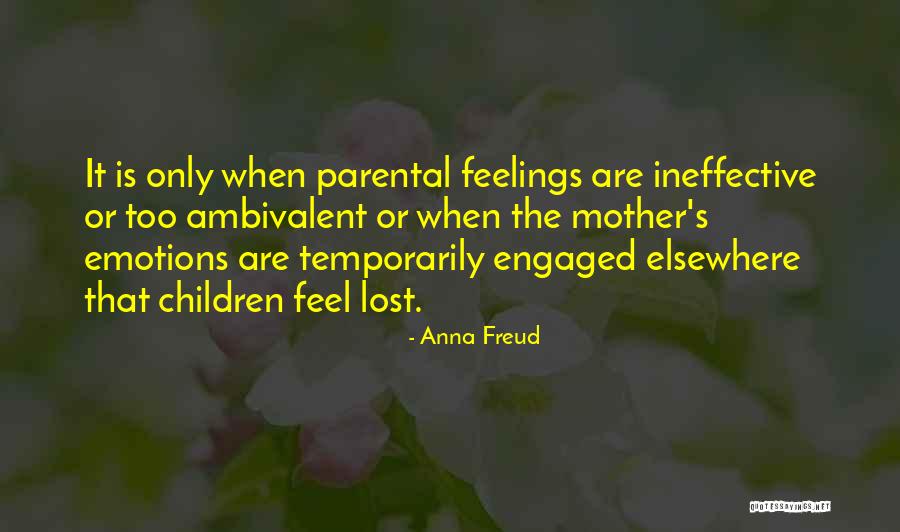
It is only when parental feelings are ineffective or too ambivalent or when the mother's emotions are temporarily engaged elsewhere that children feel lost. — Anna Freud
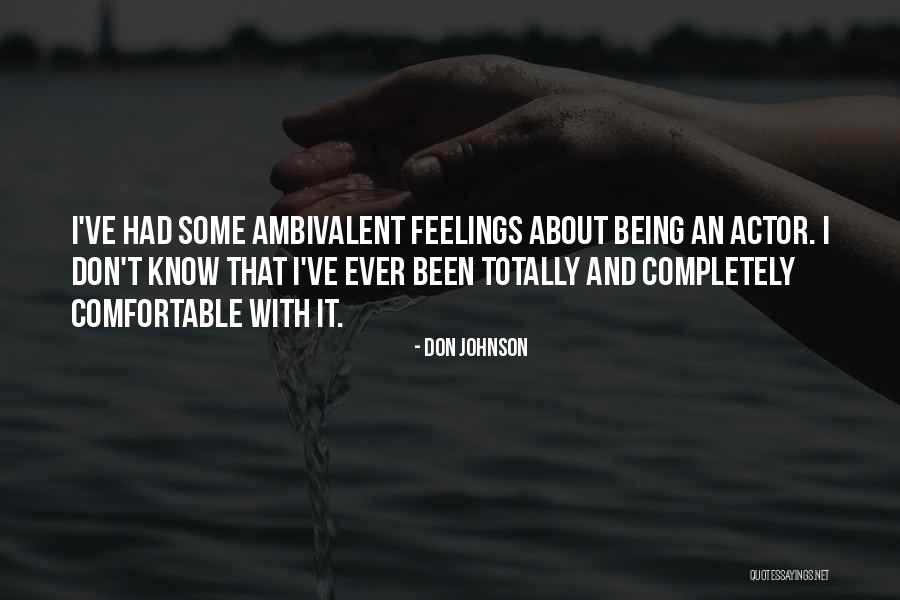
I've had some ambivalent feelings about being an actor. I don't know that I've ever been totally and completely comfortable with it. — Don Johnson
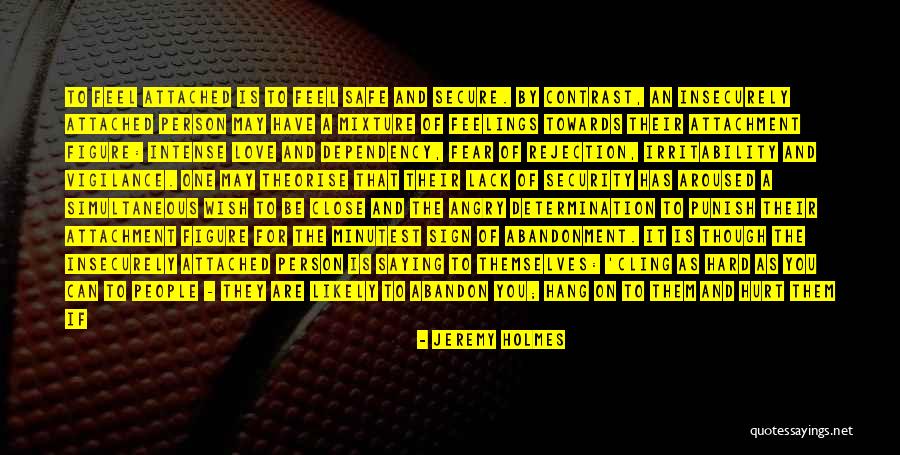
To feel attached is to feel safe and secure. By contrast, an insecurely attached person may have a mixture of feelings towards their attachment figure: intense love and dependency, fear of rejection, irritability and vigilance. One may theorise that their lack of security has aroused a simultaneous wish to be close and the angry determination to punish their attachment figure for the minutest sign of abandonment. It is though the insecurely attached person is saying to themselves: 'cling as hard as you can to people - they are likely to abandon you; hang on to them and hurt them if they show signs of going away, then they may be less likely to do so'. This particular pattern of insecure attachment is known as 'ambivalent insecurity'. — Jeremy Holmes

I'm very ambivalent in my feelings about marriage. I think it promises a lot to people - sort of like saying, once you get married you are on the highway to heaven, and quite often it isn't that. I think marriage has always been based on a combination of religious and legal reasons. — Mick Jagger
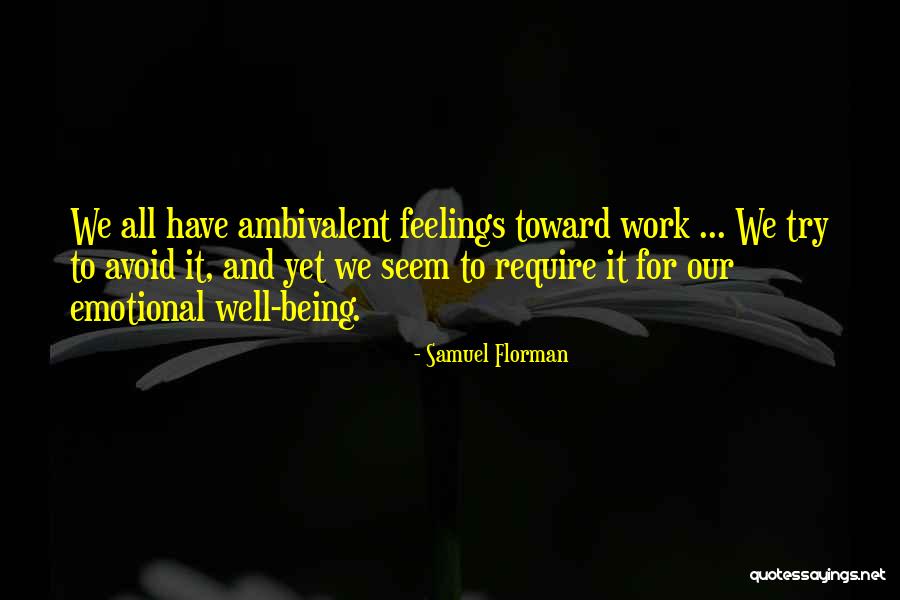
We all have ambivalent feelings toward work ... We try to avoid it, and yet we seem to require it for our emotional well-being. — Samuel Florman
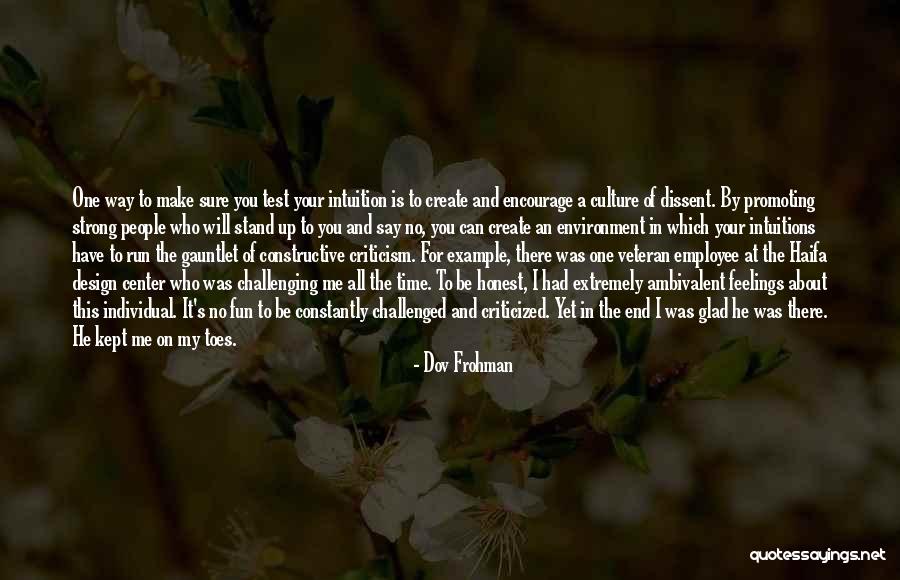
One way to make sure you test your intuition is to create and encourage a culture of dissent. By promoting strong people who will stand up to you and say no, you can create an environment in which your intuitions have to run the gauntlet of constructive criticism. For example, there was one veteran employee at the Haifa design center who was challenging me all the time. To be honest, I had extremely ambivalent feelings about this individual. It's no fun to be constantly challenged and criticized. Yet in the end I was glad he was there. He kept me on my toes. — Dov Frohman

I do not make films which are prescriptive, and I do not make films that are conclusive. You do not walk out of my films with a clear feeling about what is right and wrong. They're ambivalent. You walk away with work to do. My films are a sort of investigation. They ask questions ... Sometimes I hear that some [Hollywood] studio is interested in me. Then they discover that this is the guy who works with no script, that there is no casting discussion, no interference, that I have the final cut, and that does it. — Mike Leigh
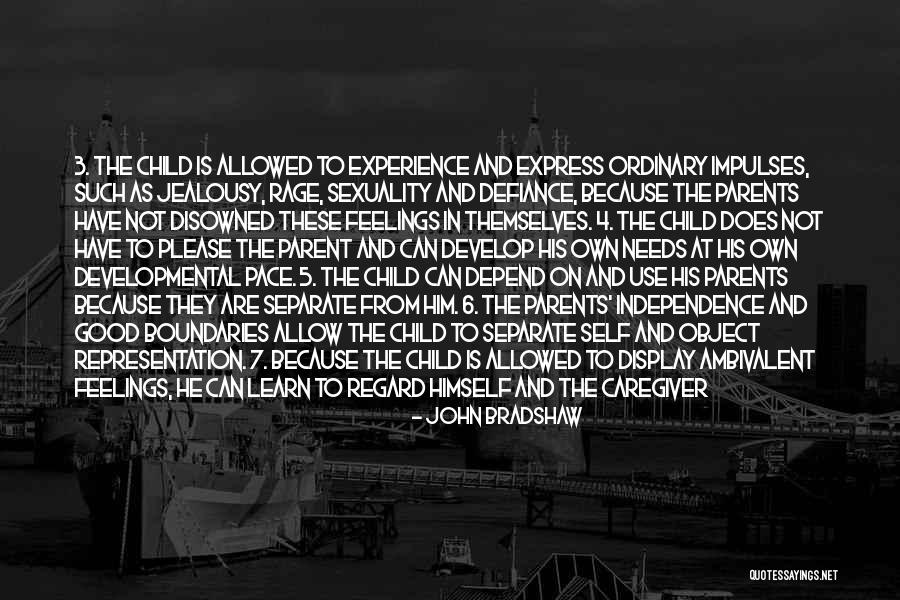
3. The child is allowed to experience and express ordinary impulses, such as jealousy, rage, sexuality and defiance, because the parents have not disowned these feelings in themselves. 4. The child does not have to please the parent and can develop his own needs at his own developmental pace. 5. The child can depend on and use his parents because they are separate from him. 6. The parents' independence and good boundaries allow the child to separate self and object representation. 7. Because the child is allowed to display ambivalent feelings, he can learn to regard himself and the caregiver as "both good and bad," rather than splitting off certain parts as good and certain parts as bad. 8. The beginning of true object love is possible because the parents love the child as a separate object. — John Bradshaw
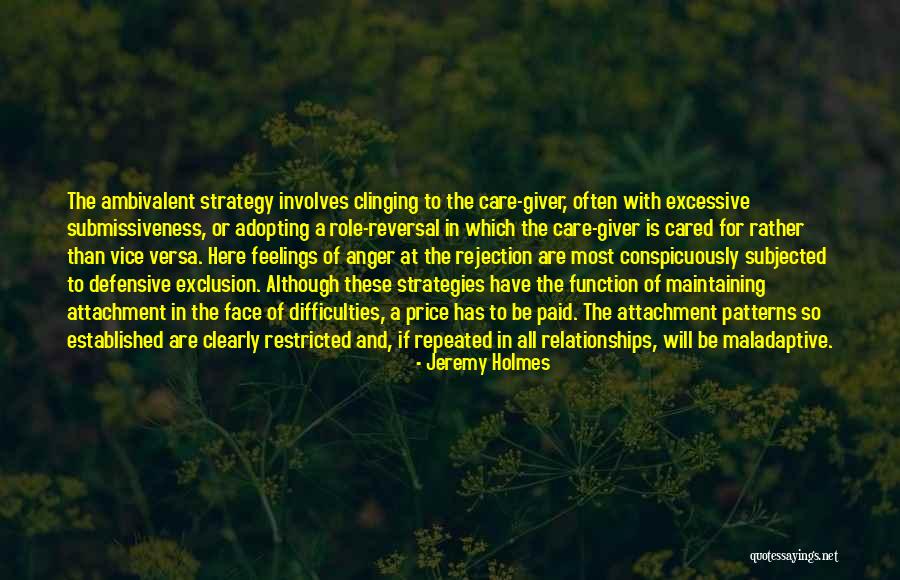
The ambivalent strategy involves clinging to the care-giver, often with excessive submissiveness, or adopting a role-reversal in which the care-giver is cared for rather than vice versa. Here feelings of anger at the rejection are most conspicuously subjected to defensive exclusion. Although these strategies have the function of maintaining attachment in the face of difficulties, a price has to be paid. The attachment patterns so established are clearly restricted and, if repeated in all relationships, will be maladaptive. — Jeremy Holmes






